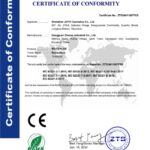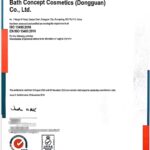

WHO WE ARE
Dinghui Cosmetics Manufacturer, a trailblazer in the cosmetics industry since 2008, holds esteemed certifications from ISO22716, GMPc, and Halal. Our 12,000 square meter factory boasts state-of-the-art technology, with 80 advanced machines and 15 automated/semi-automated production lines capable of churning out 300,000 bottles daily. Our R&D team, comprising 20 experts, ensures innovative product formulations tailored to market demands. With a rigorous quality assurance process involving 10 inspection points, we guarantee premium quality.
About usWhat we do
At Dinghui Cosmetics Manufacturer, we offer a full range of cosmetics manufacturing services, including formula development, packaging design, and production. Our main products include:
We specialize in OEM/ODM services with extensive customization options and private label manufacturing for quick market entry. Our advanced facilities guarantee high quality, and we cater to specialized needs like organic and vegan cosmetics. We also provide small order services for newly established brands. Trust Dinghui for your cosmetics manufacturing needs.

What we have done
With a robust 15-year foundation in professional cosmetics manufacturing, Dinghui Cosmetics Manufacturer has produced thousands of high-quality cosmetics and provided expert production services to numerous international brands. Our esteemed clientele spans the globe, collaborating with both established labels and emerging brands founded by fashion bloggers and internet celebrities. Over the years, we have garnered numerous accolades, recognizing our commitment to excellence and innovation.
Our cosmetics have found their way into over 30 countries, including prestigious markets like the United States and the United Kingdom. This international reach underscores our ability to cater to diverse market demands and deliver consistent quality. We aspire to foster mutually beneficial collaborations with our clients, driving growth and success together. Should you seek personalized cooperation projects, please do not hesitate to reach out to our dedicated customer service team.







